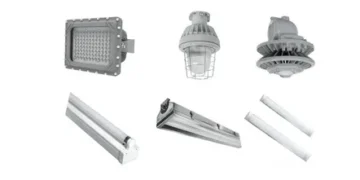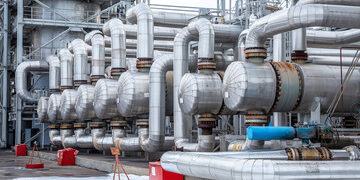Fact: Most commercial property insurance includes fire coverage, but explosions are a separate concern. Not all policies treat them the same. Misunderstanding this can leave storage facilities and businesses underinsured.
Let’s look at seven top myths about explosion coverage—and clarify what’s real.
1. “My Commercial Policy Automatically Covers All Explosions”
Many business owners assume that standard commercial property coverage includes all explosions. In reality, those policies usually cover fire, and sometimes extend to explosions caused by fire, but not all types. For example, a blast from equipment failure or a gas leak may not fall under “fire-caused explosion.”
Why it matters: If your warehouse or storage unit holds flammable or pressurized items, you may need additional protection. Without it, you could face major financial loss. Explosion coverage needs to be explicitly listed—either as a named peril or in an all-risk policy.
2. “Renters’ Insurance Storage Unit Covers Explosions Too”
You might assume your personal storage unit is covered under renters’ insurance. But that type of policy has strict limits, typically for inventory loss, theft, or fire at your home.
Renters insurance storage unit coverage is often limited or excluded entirely. A blast in a rented unit might not be covered unless your policy specifically includes it. You may think you’re safe, only to find a big gap if an explosion occurs.
3. “Any Explosion Is Covered If My Policy Lists ‘Explosion’”
Even if “explosion” is tagged as a covered risk, many policies carve out exceptions. Industrial insurance plans may cover a silo burst but not a mechanical explosion—or reverse that. Some only include steam boiler explosions, not chemical blasts.
Bottom line: Carefully read exclusions. A covered “explosion” might not be the one that matters for your business. If your storage facility contains gas cylinders or flammable liquids, you may need a custom rider or endorsement.
4. “All-Risk or Special Form Policies Include Explosion Coverage”
“All-risk” (open perils) policies generally cover all events except those specifically excluded. Yet explosions linked to nuclear reactions, intentional acts, or certain equipment breakdowns are often cut out.
What this means: Even high-level plans still require scrutiny. A general open-perils policy isn’t a catch-all. For full protection, check if your commercial property or explosions insurance for storage units includes no exclusions for your specific risks.
5. “Business Interruption Covers Costs After Any Explosion”
Yes, business interruption coverage helps replace lost income when a covered event halts operations. That includes fire, sometimes explosions, but only if the explosion is a covered peril.
Why this is key: If your policy doesn’t cover the type of explosion you experience, your income loss won’t be recovered, even if you plead impairment. This hit can be far worse than the physical damage. Always double-check if burst-related income stops are included.
6. “Explosions Only Happen in Industrial Settings”
This is a common assumption—and it’s wrong. Explosions can happen in small storage units, restaurants, retail spaces, or even office buildings. All it takes is a gas leak, faulty wiring, or chemical fumes igniting in a confined space.
For businesses that rent storage units or handle flammable items, it’s especially important to make sure those risks are covered. Don’t let the size of your space fool you—explosions aren’t just a “big factory” problem. Even small-scale setups need protection.
7. “Explosion Insurance Is Too Expensive to Add”
Some business owners skip explosion coverage, thinking it’s a luxury. But the cost of one uninsured blast can easily wipe out years of savings. The truth is, adding explosion coverage—especially to renters’ insurance for storage units—is often more affordable than people expect.
Premiums vary based on your location, type of business, and what’s being stored. But in most cases, the added protection outweighs the price. Especially if you rely on your storage unit for inventory or supplies, it’s worth having the right backup.
What You Can Do
- Review current policies. Look for the words “explosion,” “all-risk,” and check exclusions.
- Ask insurers to clarify. Especially for storage units, where renters’ policies fall short.
- Consider endorsements. If built-in coverage is weak or missing, a rider can add needed protection.
- Add business interruption coverage. Confirm that income losses from explosion-related stoppages are included.
- Document your risk. Let insurers know if you use compressed gas, flammable products, or pressure vessels. That helps tailor your protection.
A Quick Recap
Explosion events can hit hard, physically and financially. But proper coverage can buffer the blow. Just don’t rely on assumptions.
A strong policy covers:
- All relevant perils (including specific explosion types)
- Business interruption tied to the event
- Storage unit exposures when renting
By busting these myths, you stay ahead of the gaps. That’s smart business. And with trusted providers like The Hartford and expert bargaining, you can lock in coverage that truly protects.

























